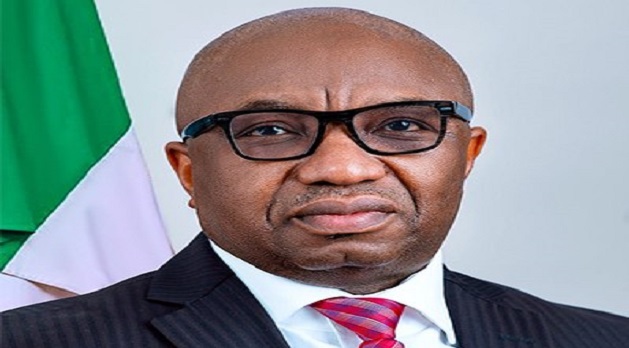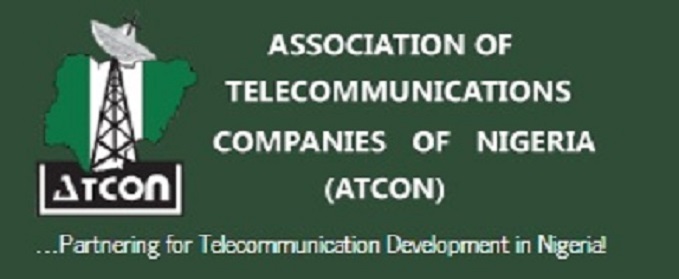Editorial
CTO and Africa’s Connectivity
It is generally believed that if Africa is to achieve the majority of its Millennium Development Goals, it must address quickly and creatively the special challenges posed by poor, illiterate, marginalized and disadvantaged rural populations.
Connectivity in Africa illustrates the global digital divide. Bridging the digital divide is important for Africa’s development, especially in education.
ICTs and their contribution to areas such as distance learning, telemedicine, and e-governance result in healthier, more literate populations better positioned to actively participate and advance national economies.
This is what the Commonwealth Telecommunications Organisation (CTO) focused last week as it made bold attempt at better Information and Communications Technology (ICT) connectivity for Africa to unleash the continent’s economic potentials.
This move is in recognition of power of connectivity to ICT to serve as effective tools for development.
For three days, delegates from CTO member nations comprising policy makers, regulators, operators, financiers, academics, technology and software developers, international aid agencies and civil society organizations steered links to fire the kiln of Africa’s development.
The summit with the theme "Ensuring Effective Connectivity for a Socially Inclusive and a Commercially Vibrant Africa" also explored Africa as a fertile emerging market for ICT business and benchmarked one’s strategies against other regional and international colleagues and competitors.
While some delegates tried to push their business objectives onto the African rural connectivity agenda, other were busy networking and interacting with senior decision makers from the private, public and the third sectors.
The summit also gave insights into current trends in technological advancements – the latest products and services demonstrated in the exhibition area.
Beyond the public speeches and passion expressed at the summit, Africa must begin to take into account the technology transfer opportunities while looking to assemble a body of knowledge that could constitute a ‘connectivity roadmap for Africa’, which would be of enormous interest and benefit to various stakeholders, most particularly the investment community and the ICT sector.
CTO should also try to bridge the gender digital divide through strategic partnerships.
Africa should support the development of a critical mass of ICT skills required by the knowledge economy by establishing a network of ICT Centres of Excellence in each sub-region of Africa and ICT capacity-building and training centres in each country.
Editorial
NDPC Boss Nominated for Global Privacy Assembly’s Giovanni Buttarelli Award 2024

Dr Vincent Olatunji, National Commissioner and Chief Executive Officer of Nigeria Data Protection Commission (NDPC), has been nominated for the Giovanni Buttarelli Award 2024. The award through the Global Privacy Assembly recognises an individual’s outstanding leadership and exceptional efforts in fostering international collaboration.

Dr Vincent Olatunji
This nomination highlights Dr Vincent’s commitment to driving innovation, expanding global partnerships, and promoting a collaborative approach within the data privacy and protection ecosystem.
Under the visionary leadership of Dr Vincent, the Data Privacy ecosystem in Nigeria has witnessed a remarkable growth through key milestones such as deepening the knowledge of data protection and privacy in all public and private institutions, judicial recognition of adequacy principle in cross-border data transfer, playing key roles in regional and global data privacy ecosystem, commencement of bilateral cooperation with other jurisdictions, licensing of data protection compliance organisations, commencement of national data protection certification process, among others.
Dr Vincent’s strategic and innovative initiatives has been instrumental in forging strong international partnerships, driving sustainable growth, fostering a culture of collaboration which has not only propelled the NDPC to new heights but also set a benchmark for international cooperation and industry standards.
The Giovanni Buttarelli Award celebrates leaders who have demonstrated exceptional leadership and/or promoted collaboration at a regional or international level in the field of data privacy and protection.
Nominees are evaluated based on their contributions to projects that has led to the development of innovative concepts or practices, which have significantly impacted the thinking in the international data protection and privacy community, partnerships, and initiatives that enhance global cooperation and development.
In his response to his nomination, Dr Vincent Olatunji expressed his gratitude and emphasised on the importance of collective effort in achieving global progress. “I am deeply honored to be nominated for the Giovanni Buttarelli Award 2024” said Dr Vincent.
“This recognition is a testament to the hard work and dedication of our entire team at NDPC. It underscores the power of collaboration and the remarkable outcomes we can achieve when we work together across borders.
“I am excited to continue our journey, driving innovation and fostering partnerships that make a positive impact globally,” he said.
Editorial
Telcos Ask NCC to Allow Them Hike Tariff

Telecoms operators including MTN, Airtel and Globacom have pushed for cost-reflective tariff in view of extant economic realities.

This was contained in a statement jointly released by the Association of Licensed Telecom Operators of Nigeria (ALTON) and the Association of Telecommunication Companies of Nigeria (ATCON) on Thursday.
The statement was co-signed by Gbenga Adebayo; chairman, ALTON and Tony Emoekpere, president, ATCON.
The telcos called upon the government to take decisive action in addressing the numerous challenges confronting the telecommunications industry.
The telcos said telecommunications infrastructure development requires substantial investments in network expansion, maintenance, and technology upgrades.
“Despite the adverse economic headwinds, the telecommunications industry remains the only industry yet to review its general service pricing framework upward in the last (11) years, primarily due to regulatory constraints.
“For a fully liberalized and deregulated sector, the current price control mechanism, which is not aligned with economic realities, threatens the industry’s sustainability and can erode investors’ confidence.
“ATCON and ALTON call upon the government to facilitate a constructive dialogue with industry stakeholders to address pricing challenges and establish a framework that balances consumers’ affordability with operators’ financial viability,” the statement partly read.
Regarding the Nigerian Communications Commission (NCC), the telcos also said regulatory neutrality and independence are crucial to ensuring a thriving telecommunications sector.
“Statutory provisions lend credence to this notion, as a lack of an impartial regulator will lead to a failure to maintain public confidence in the objectivity and independence of its decisions,” the statement added.
Editorial
FG Reiterates Commitment to Achieving 17 SDGs

The federal government has reiterated its commitment to achieving all the 17 Sustainable Development Goals (SDGs) to promote economic growth and eliminate poverty in Nigeria.

The Minister of Special Duties and Intergovernmental Affairs, Senator George Akume, gave the assurance at a news conference on Tuesday, in Abuja ahead of the “Inaugural Partnership Economy Summit”, scheduled for September 14 and 15.
According to Akume, the primary purpose of the summit is to diversify the economy, promote rural growth, as well as generate sustainable jobs for the youths.
Achieving this, the minister emphasised on partnership with other stakeholders as it was the responsibility of his ministry to achieve the aim of its mission and the creation.
“The framework for the upcoming summit, guided by the principles of Public Social Private Partnership (PSPP) is being designed to develop, promote a multi-Iayered collaborative socio-economic platform for the government, the business sector as well as the civil society.
“In order to achieve this, President Muhammadu Buhari established the ministry with the mandate to develop and implement policies, programmes and projects for the effective and efficient delivery of the gains of Economic Growth and Recovery Plan,” Akume said.
He said the ministry was also charged with the mandate of collaborating with the private sector to create employment for a large number of Nigerian youths, adding that it is also meant to implement a strategy towards the realisation of the president’s June 12 promise to take 100 million Nigerians out of poverty in 10 years.
“Nigeria is among the countries in the UN that signed a pact to implement the SDGs by 2030, in the words of Ban Ki-Moon, former Secretary-General of UN in 2016.
“Nigeria is not left out in its plan towards achieving the SDGs, and how far has Nigeria gone to achieving the 806 goals is part of the questions that the upcoming summit seeks to address,” Akume explained.
He stated that to tackle the issue of poverty and unemployment, the ministry is in partnership with a number of stakeholders, including the Ministry of Industry, Trade and Investment; and Small and Medium Enterprises Development Agency of Nigeria.
Others are Raw Materials Research and Development Council, National Orientation Agency, Association of Local Government of Nigeria and SDGs Nigeria as well as MYK Psymmons Solutions Limited to come up with achievable solutions to all the challenges.

 E-Financial2 days ago
E-Financial2 days agoKuda Unveils New Wallet for Multiple Currencies

 Telecom2 days ago
Telecom2 days agoTelcos Resume SIM Card Sales after 2-Week Halt

 Telecom2 days ago
Telecom2 days agoNigeria, Others Achieve 84% Adult Mobile Phones Penetration

 E-Business2 days ago
E-Business2 days agoHow AI Alert by Airtel is Transforming Mobile Security in Africa

 E-Business2 days ago
E-Business2 days agoNITDA, API Partner Against Harmful Online Content

 News2 days ago
News2 days agoHorn of Africa Leaders Seek Enhanced Digital Integration for Increased Regional Growth

 Telecom2 days ago
Telecom2 days agoSophos Secures Leadership Spot in 2025 Gartner Magic Quadrant for Endpoint Protection

 News2 days ago
News2 days agoNIA Questions Legality of Reps’ Financial Probe















